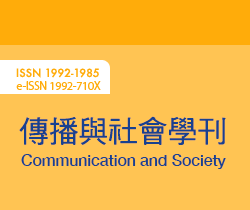 |
| January 2008 |
 |
6 |
|
| 研究論文Research Articles |
| 開放與守門的辯證:中國電影產業改革 歷程之制度分析 |
| Dialectics of Opening Up and Gate Keeping: An Institutional Analysis on the Reform of the Film Industry in Mainland China |
|
|
|
 |
 (6983)
(6983)
|
| 作者 |
劉立行 |
| Author |
Liu Li-hsing |
| 關鍵詞 |
制度創新、新制度理論、許可制 |
| Keywords |
institutional innovation, New Institutionalism, sanction |
| 摘要 |
本文對中國大陸電影製作、發行與映演三大領域的產業制度改革歷程作出討論。討論對象為國際協議下的制度改革背景、制度中政府的主體性角色、以及電影產業三大領域的制度創新內容。本文運用新制度理論範式中的一些概念作為分析工具,以解釋中國大陸電影制度變革中的過程與意義。以歷史向度與法規考據為經,以新制度論的分析取徑為緯,本文勾勒了中國大陸電影三大領域比較完整的制度改革圖像。最後,本文將中國大陸電影的制度創新特徵歸納為數項,其中無所不在的許可制,最突出地彰顯改革過程中政治的制約作用。 |
| Abstract |
This paper discusses the historical process of the institutional change of the film industry in Mainland China, encompassing the sectors of production, distribution and exhibition. The focal points of the discussion fall upon, respectively, the context of international agreements, the role of the government/state in the institutional arrangement, and the contents of institutional innovations happening in the three sectors of China’s film industry. The paradigm of New Institutionalism is used to situate the analysis, and a number of theoretical concepts from this theoretical paradigm are adopted as analytical tools. Weaving these tools into an analysis of the contents of various official regulatory papers, this analysis outlines a relatively complete landscape of Chinese film institutional reform and concludes with a discussion on several innovative features of the institutional changes in China’s film industry. Among them, the ubiquitous mechanism of sanction manifests itself most prominently, demonstrating the dominant role of the government in the process of the changes. |
|
|
 |
| No.74 2025 October |
 |
| No.73 2025 July |
 |
| No.72 2025 April |
 |
| No.71 2025 January |
 |
| No.70 2024 October |
|
